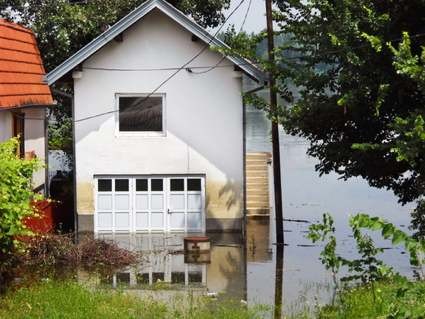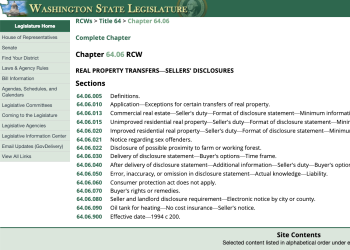Basement flooding is a nightmare if you are a buyer who discovers after closing that the seller knew about the basement flooding but did not disclose that knowledge. I got a call yesterday from a gentleman who lives across the pond in the Tacoma area, and that’s exactly what happened to him.

Basement Flooding Nightmare
In Washington, as in every state, a seller must disclose any known defects when selling a home. The seller’s disclosure statement, or Form 17 as it is known in Washington, consists of six pages of questions a seller must answer. A seller must answer truthfully, but the problem for a buyer is always proof. How do you prove that a seller knew something in his head but did not disclose it in writing?
In the Tacoma case, the seller was also a contractor who remodeled the basement to make it look perfect. Shortly after closing the young buyer couple who were excited about having bought their first home, suddenly had a basement flooding. Normally that might be hard to prove, but this buyer got lucky.
His neighbor just happened to have rented the house the previous year, and she knew from personal knowledge that basement flooding was a periodic event. But it gets better. She had saved emails between her and the seller complaining about the basement flooding.
Basement Flooding Evidence
This is one case where all the evidence stacked up against a dishonest seller & contractor. Unfortunately, all of this is a tremendous hardship on the young buyers, because they don’t have the money to repair the basement right away, and they don’t have the money to hire an attorney.
I’ve never seen the Seller’s Disclosure Statement actually help a buyer. You cannot legislate honesty. Someone who would cheat a buyer is also someone who would lie on a Form 17 about basement flooding. I always recommend that a buyer also hire their own home inspector, who will examine a house from top to bottom for any sign of problems. While a home inspector might not discover a defect that has been covered up intentionally, like basement flooding, due diligence is always a good idea before you close.
Last Updated on September 6, 2019 by Chuck Marunde



























